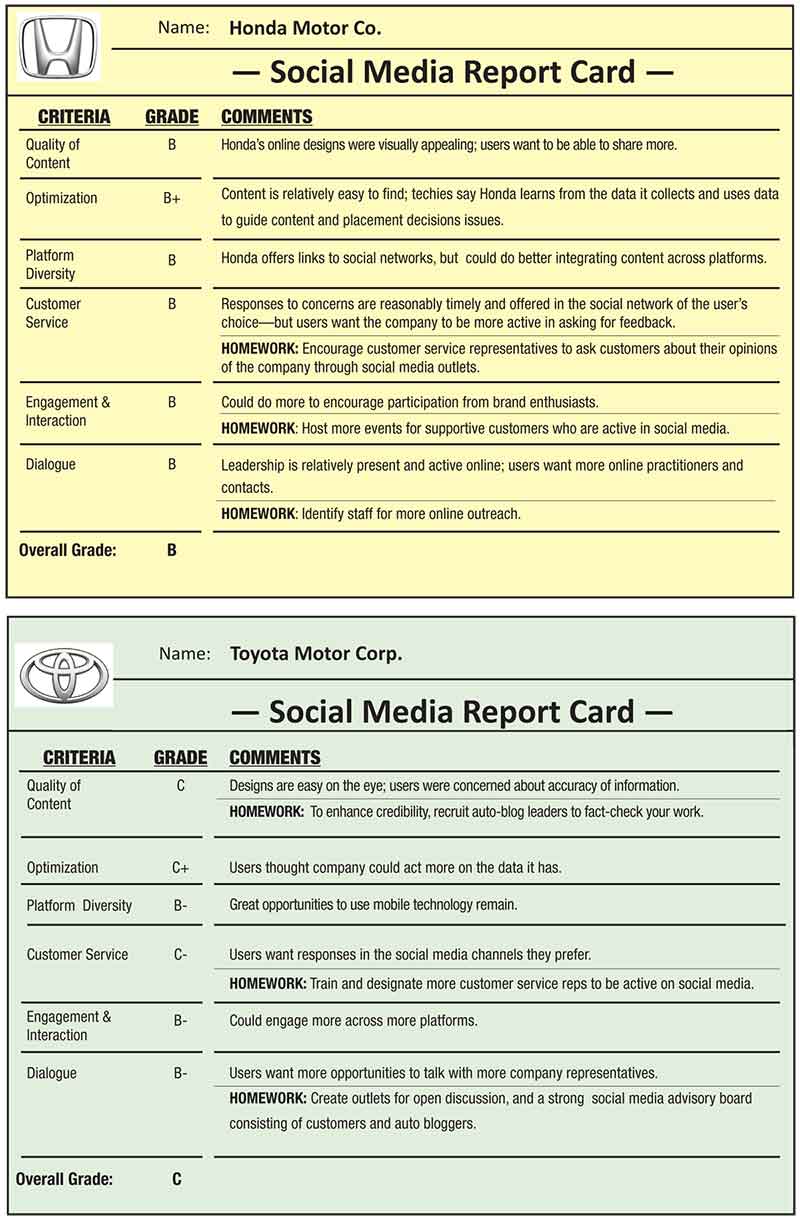The list of challenges facing the global auto industry never seems to end, from debt burdens to quality problems, and environmental regulations to natural disasters. Now, Forbes reporter Panos Mourdoukoutas sees trouble ahead for two of the industry’s best-selling models—the Toyota Camry and the Honda Civic. He suggests that the automakers’ corporate and product brand issues “make it difficult for the two companies to generate the necessary word-of-mouth and buzz to keep the two models on the best-selling list of consumers.”
It’s clear that both companies have made aggressive pushes via social media channels to introduce their 2012 models. However, the success of Toyota’s and Honda’s 2012 campaigns will depend on how well they meet the expectations of Social Informants, a group of Internet users who influence a company’s online target audiences. They play a role in how social media should be used to market products, shape reputations and advocate for the ideas in which they believe.
 |
Based on opinion polling conducted among Social Informants, APCO identified six factors that make a company successful in social media and worth supporting: quality of content, optimization, platform diversity, customer service, engagement and interaction and direct dialogue. Not surprisingly, Social Informants place the most value on customer service and dialogue, but all six factors are important.
The unique issues faced by the auto industry create significant challenges in developing and implementing social media campaigns—challenges that would not otherwise be seen in different industries such as personal technology or consumer products. For example, the auto dealer plays a more significant role in the purchase process for an automobile than a retailer might for a PC or a personal item. And, of course, the higher price tag also raises the stakes. When asked to evaluate Toyota and Honda, the Social Informants gave a slight edge to Honda—suggesting that Honda’s content is more easily found and shared, and that the company is favorable among influential people online.
Since the survey, Toyota is working to close the gap through an intense promotion of the Camry to influential leaders of online communities. Honda is taking a more creative approach—providing rising musicians the opportunity to promote themselves and their music through the company’s social media platforms.
Toyota began its online promotion of the 2012 Camry early by releasing “teasing” photos on Facebook and Twitter. The company then embraced the online channels, not simply by webcasting the rollout but by actively and engaging influentials such as leading enviro-blogger Tim Hurst.
Honda sought to generate buzz by focusing on an interest of its younger Civic owners: music. They established a Civic-inspired music video contest, called “Sounds of Civic,” and kicked it off with musician Pete Wentz. Musicians were challenged to write a song, inspired by the Honda Civic, and post a video on Facebook.
Year-end sales and marketing numbers will help determine whether each company used social media effectively to overcome corporate or product brand challenges.
CONTACT:
David Wescott is a VP at APCO Worldwide, where he directs the company's social media team. He can be reached at [email protected].
